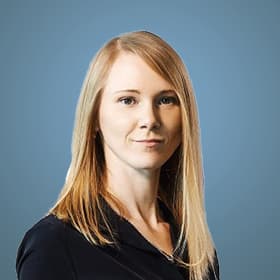BDO in Ukraine is dedicated to supporting the growth of Ukrainian business in international markets. On August 22, in partnership with the Ukrainian Business Council Dubai and Northern Emirates and the Ukraine Arab Business Chamber, the webinar was held on the topic “Prospects for the Development of Ukrainian Business in the UAE and Saudi Arabia Markets”, attracting an audience keen on the Middle Eastern market.
At this meeting, the participants and speakers discussed the prospects for the development of Ukrainian business in the markets of the United Arab Emirates and the Kingdom of Saudi Arabia, with a focus on the importance of proper product certification, understanding local legislative and cultural nuances, and selecting reliable partners for successful market entry.
Our traditional roundup began with an overview of the UAE and Saudi Arabia markets, presented by Mykyta Doroshenko, Vice President of the Ukrainian Business Council Dubai and Northern Emirates, and co-founder of the Ukraine Arab Business Chamber. The key points worth noting are outlined below.
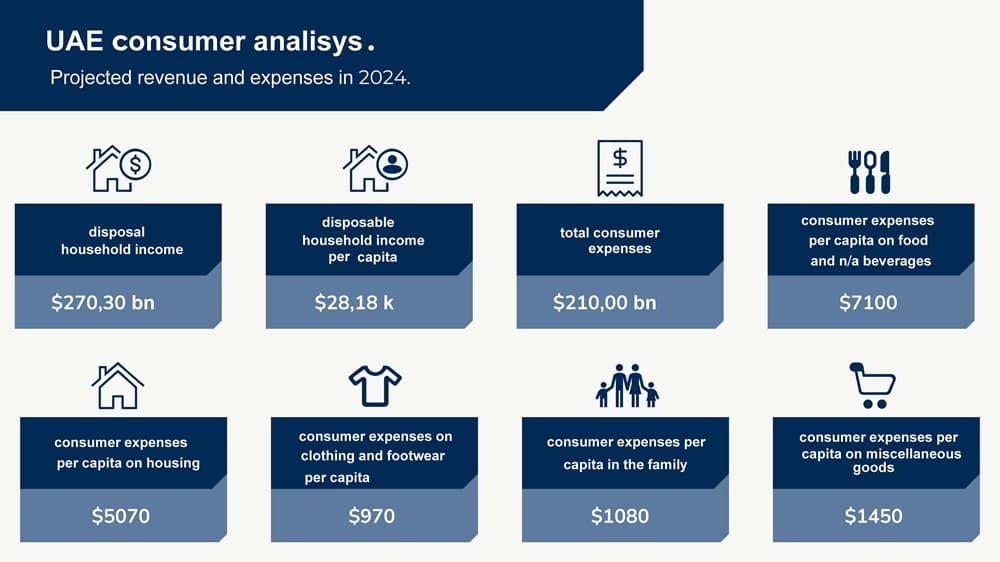
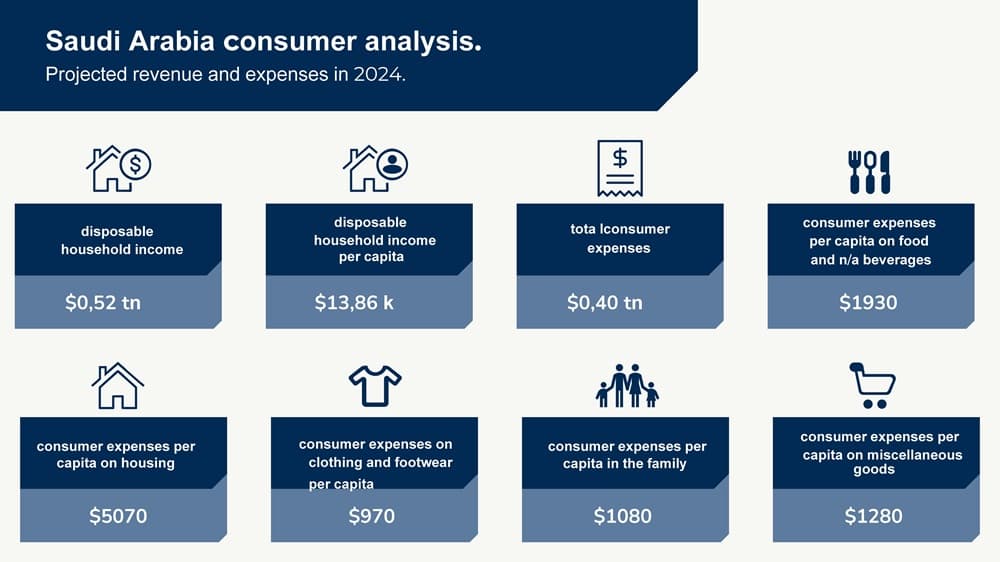
Afterwards, we proceeded to discuss product certification in the Emirates and Saudi Arabia. Andrii Znaichenko, co-founder of the UMIXMART distribution company, addressed this topic. He pointed out the importance of correctly submitting an application to an accredited certification body in the UAE and the need to send product samples for testing by an accredited laboratory. Upon successful completion of the tests, the company receives a certificate of conformity. Food products also need to have a food safety declaration, and products with animal components are required to have a HALAL certificate. Regarding Saudi Arabia, the keynote speaker highlighted the importance of using the electronic certification system SALEEM SABER and product conformity assessment, which is mandatory for all imported goods.
Speaking about product labeling, Andriy Znaichenko noted that it must comply with local quality and safety standards, and all information on the label should be duplicated in Arabic. Incorrect labeling can lead to fines.
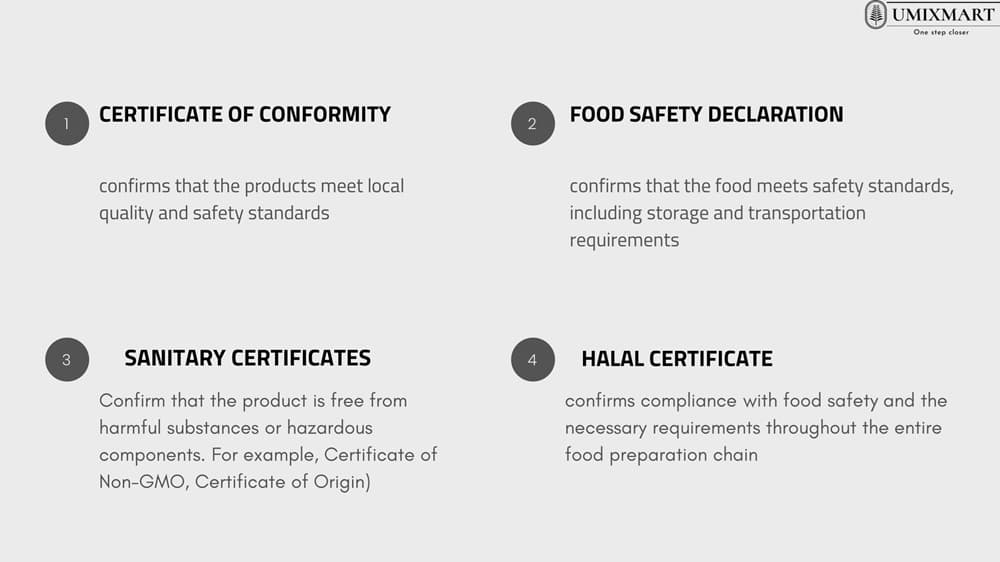
We have invited Olena Kurchyna, co-founder of the cosmetics brand ELAN (offices in the UAE, Poland and Turkey), to share her experience and learn more about the nuances of doing business in the Middle East. ELAN has been an official exporter of products to the Emirates for several years, and in her speech, Olena described the journey her company has taken while operating in various international markets and focused on the mistakes to avoid when entering new markets. The speaker underscored the importance of trademark registration, choosing the right license, the need to engage local legal and accounting professionals, and adapting products to local needs. According to Olena Kurchyna’s personal experience, face-to-face communication with potential partners in the UAE is crucial, and when working with the corporate clients, an Arabic speaking manager is highly recommended. When it comes to language, English is quite enough for Ukrainian businessmen to do business in the United Arab Emirates. However, English is not fluent in Saudi Arabia, so keep in mind that an interpreter will be required to communicate with the local partners and authorities.
We believe that many Ukrainian businesswomen are wondering about the attitude towards women in business in the Middle East, so we asked Olena about it. Her answer was that the attitude towards women in business is positive, and she personally communicates with men on an equal footing.
Further, Olena Shyrokova, President of the Ukrainian Business Council Dubai and United Arab Emirates and co-founder of the Ukraine Arab Business Chamber, explained the legal aspects and regulatory requirements for doing business in the Middle East, specifically in the Emirates and Saudi Arabia. She shared her recommendations on how to prepare legally for entering the UAE market.
When starting a company in the Emirates, one of the first steps is to choose the right structure for the future company, in particular, to decide between free zones and mainland. Free zone is a designated autonomous area of jurisdiction within each Emirate. Free zones are managed by a regulatory authority and operate under their own rules. Currently, there are more than 40 of them in the UAE. A company registered in a free zone has the right to trade only within the free zones and outside the UAE. A mainland company is a business entity that has been registered with the Ministry of Economy under the supervision of the Department of Economic Development (DED). A mainland company in the UAE is not limited to trade and can do business in and outside the UAE.
For long-term business in the Emirates, Olena Shyrokova says, it is important to have a clear vision of your business plan for coming 3 years to choose the right license and structure of the company. Before, 51% of shares were required to be held by a UAE citizen when a new company was established in the UAE. No longer is it required to have a local partner to own a majority of shares. The owner of the company can be an absolute foreigner, but some businesses still require a local partner.
Knowledge of local laws, including understanding of labor, corporate, and tax laws, and understanding the specifics of written contracts to protect your business is important no matter which country you are doing business with. And Olena pointed out that when choosing advisers, you should contact qualified and proven professionals with expertise in a particular country.
The panel was closed by our honored speaker from the Export Credit Agency (ECA), Denys Garasiuta, who gave an overview of the opportunities provided by the ECA for exporting products to international markets. The ECA supports exporters by insuring export contracts and loans to finance their execution. Since 2020, the agency has supported exports for UAH 1.5 billion to the Middle East countries, including UAH 847 million to the UAE. As of half of 2024 alone, the UAE is in the TOP-5 countries where Ukraine exports by the amount of concluded and insured contracts.
Denys emphasized the importance of insurance to minimize risks in international trade (for example, insurance against payment problems associated with a new partnership). However, keep in mind that not every company can use the services of the ECA, as the first priority is to help manufacturers who create products with increased added value. You can check whether the UCG FEC code meets the requirements of the respective law using a plug-in on the ECA website.
Mr. Garasiuta also introduced the participants to a new product - investment insurance against military and political risks, explained the assessment of losses and tariff formation, as well as the conditions for recognizing an event as insured. The insurance tariff for FEC agreements with the UAE and Saudi Arabia currently does not exceed 2%.
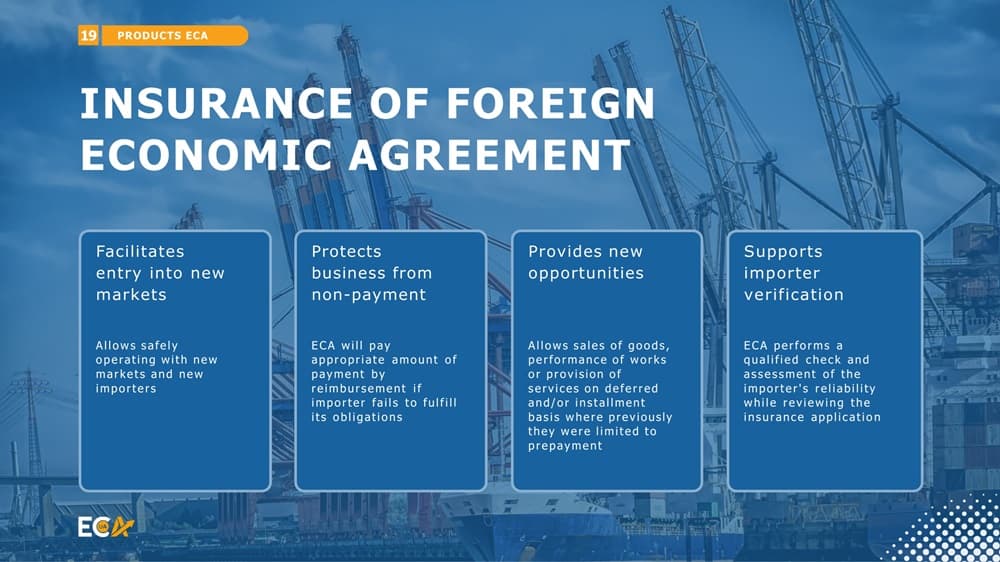
Special thanks to the speakers for sharing useful information and advice that will help to build the right strategy for entering the UAE and Saudi Arabia markets. The attendees were extremely active this time. Obviously, the Middle East is so different from the European and American markets that everyone is used to, and due to its high level of economic development, it attracts Ukrainian businessmen.
If your company is planning to enter the Middle East markets, team of BDO in Ukraine, in cooperation with the Ukrainian Business Council Dubai and United Arab Emirates and the Ukraine Arab Business Chamber, can provide full support, from tax advice to compliance with local regulatory requirements. Contact us for more details.
The webinar recording is available below (in Ukrainian).
Our traditional roundup began with an overview of the UAE and Saudi Arabia markets, presented by Mykyta Doroshenko, Vice President of the Ukrainian Business Council Dubai and Northern Emirates, and co-founder of the Ukraine Arab Business Chamber. The key points worth noting are outlined below.
- The Middle East market is quite dynamic, so before taking any steps to enter it, make sure you have the latest information on business registration, legislative regulations, certification, taxes, and excise duties.
- Value Added Tax (VAT) is in effect in both countries. In the UAE, it is 5% (in place since 2018) and about 97% of goods are subject to this tax. In Saudi Arabia, the VAT is 15% (in place also since 2018, initially it was 5%, but increased to 15% in 2020).
- In both countries, interest in sustainability and ESG is growing every year, so if Ukrainian businesses can offer the appropriate solutions and products, they have high chances of beating the market rapidly.
- It takes twice as long and is more expensive to open a company in Saudi Arabia than in the UAE.
- The high solvency of the population in these regions creates significant demand for Ukrainian goods, particularly food products, technology, construction materials, and consumer goods. This includes organic and healthy food, grains, fats and oils (for example, over 50% of sunflower oil in the UAE in 2023 was imported just from Ukraine), dairy products, poultry, IT and digital solutions, construction materials (they say that Burj Khalifa incorporates Ukrainian steel in its structure), and consumer goods such as clothing, home furniture, and more. You should also keep in mind that Saudi Arabia has being experiencing significant economic transformation and diversification in recent years (with the primary goal of reducing the economy's dependency on oil and gas), and e-commerce is actively developing in the country. This primarily drives high demand for advanced technological solutions.
- Export-import relations between Ukraine and the UAE. As of 2021, the two-way trade amounted to USD 1,147 billion, setting a record. Since the outbreak of the full-scale invasion, however, the trade volume has declined significantly and amounted to USD 386 million in non-oil trade in 2023. At the same time, the Emirates have been investing a lot in Ukraine, particularly in such sectors as logistics, infrastructure, and advanced technologies. It was also noted that on December 5, 2022, Ukraine and the UAE announced their intention to conclude a Comprehensive Economic Partnership Agreement (CEPA), and this was confirmed by both sides, opening new opportunities for Ukrainian goods and services in the UAE market.


Afterwards, we proceeded to discuss product certification in the Emirates and Saudi Arabia. Andrii Znaichenko, co-founder of the UMIXMART distribution company, addressed this topic. He pointed out the importance of correctly submitting an application to an accredited certification body in the UAE and the need to send product samples for testing by an accredited laboratory. Upon successful completion of the tests, the company receives a certificate of conformity. Food products also need to have a food safety declaration, and products with animal components are required to have a HALAL certificate. Regarding Saudi Arabia, the keynote speaker highlighted the importance of using the electronic certification system SALEEM SABER and product conformity assessment, which is mandatory for all imported goods.
Speaking about product labeling, Andriy Znaichenko noted that it must comply with local quality and safety standards, and all information on the label should be duplicated in Arabic. Incorrect labeling can lead to fines.

We have invited Olena Kurchyna, co-founder of the cosmetics brand ELAN (offices in the UAE, Poland and Turkey), to share her experience and learn more about the nuances of doing business in the Middle East. ELAN has been an official exporter of products to the Emirates for several years, and in her speech, Olena described the journey her company has taken while operating in various international markets and focused on the mistakes to avoid when entering new markets. The speaker underscored the importance of trademark registration, choosing the right license, the need to engage local legal and accounting professionals, and adapting products to local needs. According to Olena Kurchyna’s personal experience, face-to-face communication with potential partners in the UAE is crucial, and when working with the corporate clients, an Arabic speaking manager is highly recommended. When it comes to language, English is quite enough for Ukrainian businessmen to do business in the United Arab Emirates. However, English is not fluent in Saudi Arabia, so keep in mind that an interpreter will be required to communicate with the local partners and authorities.
We believe that many Ukrainian businesswomen are wondering about the attitude towards women in business in the Middle East, so we asked Olena about it. Her answer was that the attitude towards women in business is positive, and she personally communicates with men on an equal footing.
Further, Olena Shyrokova, President of the Ukrainian Business Council Dubai and United Arab Emirates and co-founder of the Ukraine Arab Business Chamber, explained the legal aspects and regulatory requirements for doing business in the Middle East, specifically in the Emirates and Saudi Arabia. She shared her recommendations on how to prepare legally for entering the UAE market.
When starting a company in the Emirates, one of the first steps is to choose the right structure for the future company, in particular, to decide between free zones and mainland. Free zone is a designated autonomous area of jurisdiction within each Emirate. Free zones are managed by a regulatory authority and operate under their own rules. Currently, there are more than 40 of them in the UAE. A company registered in a free zone has the right to trade only within the free zones and outside the UAE. A mainland company is a business entity that has been registered with the Ministry of Economy under the supervision of the Department of Economic Development (DED). A mainland company in the UAE is not limited to trade and can do business in and outside the UAE.
For long-term business in the Emirates, Olena Shyrokova says, it is important to have a clear vision of your business plan for coming 3 years to choose the right license and structure of the company. Before, 51% of shares were required to be held by a UAE citizen when a new company was established in the UAE. No longer is it required to have a local partner to own a majority of shares. The owner of the company can be an absolute foreigner, but some businesses still require a local partner.
Knowledge of local laws, including understanding of labor, corporate, and tax laws, and understanding the specifics of written contracts to protect your business is important no matter which country you are doing business with. And Olena pointed out that when choosing advisers, you should contact qualified and proven professionals with expertise in a particular country.
The panel was closed by our honored speaker from the Export Credit Agency (ECA), Denys Garasiuta, who gave an overview of the opportunities provided by the ECA for exporting products to international markets. The ECA supports exporters by insuring export contracts and loans to finance their execution. Since 2020, the agency has supported exports for UAH 1.5 billion to the Middle East countries, including UAH 847 million to the UAE. As of half of 2024 alone, the UAE is in the TOP-5 countries where Ukraine exports by the amount of concluded and insured contracts.
Denys emphasized the importance of insurance to minimize risks in international trade (for example, insurance against payment problems associated with a new partnership). However, keep in mind that not every company can use the services of the ECA, as the first priority is to help manufacturers who create products with increased added value. You can check whether the UCG FEC code meets the requirements of the respective law using a plug-in on the ECA website.
Mr. Garasiuta also introduced the participants to a new product - investment insurance against military and political risks, explained the assessment of losses and tariff formation, as well as the conditions for recognizing an event as insured. The insurance tariff for FEC agreements with the UAE and Saudi Arabia currently does not exceed 2%.

Special thanks to the speakers for sharing useful information and advice that will help to build the right strategy for entering the UAE and Saudi Arabia markets. The attendees were extremely active this time. Obviously, the Middle East is so different from the European and American markets that everyone is used to, and due to its high level of economic development, it attracts Ukrainian businessmen.
If your company is planning to enter the Middle East markets, team of BDO in Ukraine, in cooperation with the Ukrainian Business Council Dubai and United Arab Emirates and the Ukraine Arab Business Chamber, can provide full support, from tax advice to compliance with local regulatory requirements. Contact us for more details.
The webinar recording is available below (in Ukrainian).


